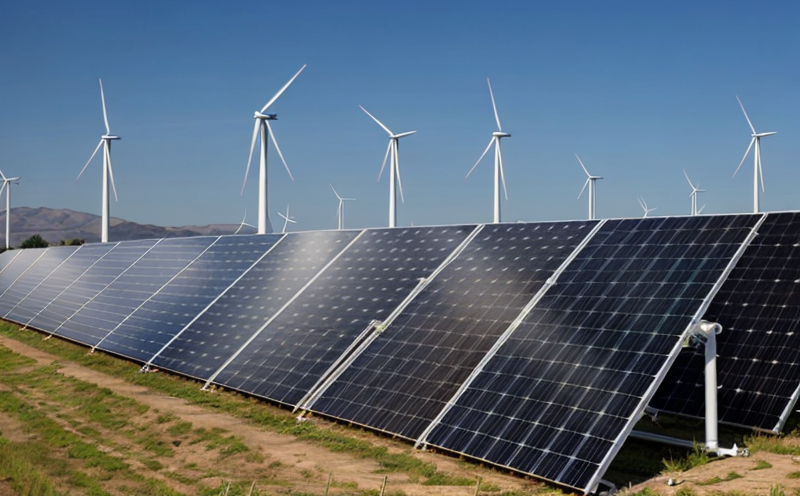IEEE 2030 Interoperability Testing of Smart Renewable Grids
The IEEE Standard 1547 series and specifically IEEE P2030 provide the framework for smart renewable grid interoperability. This service focuses on ensuring that renewable energy systems, including photovoltaic (PV) arrays, wind turbines, and battery storage units, are designed to operate seamlessly with existing power grids. Our testing ensures compliance with these standards while enhancing system reliability and safety.
The IEEE P2030 standard outlines the framework for achieving a smart grid that is energy efficient, reliable, safe, secure, and sustainable. It specifies guidelines for integrating distributed energy resources (DERs) into power systems to improve efficiency and reduce costs. The key aspects of our testing include:
- Testing interoperability between DERs and utility grids
- Evaluating the performance of smart inverters
- Assessing voltage and frequency stability
- Ensuring compliance with IEEE P2030 standards for demand response and energy management systems
In our testing process, we use state-of-the-art equipment to simulate real-world conditions. This includes dynamic load profiles that mimic the behavior of DERs under various operational scenarios. Our laboratory adheres strictly to the IEEE P2030 standard for demand response and energy management systems. Compliance with these standards ensures seamless integration into existing grid infrastructure.
Our services are designed to meet the needs of quality managers, compliance officers, R&D engineers, and procurement teams involved in the design and deployment of renewable energy systems. By ensuring that all components comply with IEEE P2030 standards, we contribute significantly to enhancing system reliability and safety. This is crucial for preventing potential failures that could disrupt power supply or endanger public safety.
| Standard | Description |
|---|---|
| IEEE P2030 | The standard that outlines the framework for achieving a smart grid, including guidelines for integrating DERs into power systems. |
| IEEE 1547 Series | Standards related to interconnection of DERs with utility grids. |
Our testing facilities are equipped with advanced instrumentation and software that allow us to conduct comprehensive evaluations. This includes monitoring the performance of smart inverters, assessing voltage and frequency stability, and evaluating demand response capabilities. By adhering strictly to IEEE P2030 standards, we ensure that all systems perform optimally under real-world conditions.
In addition to our testing services, we also provide detailed reports that document every aspect of the evaluation process. These reports are invaluable for quality managers and compliance officers looking to demonstrate adherence to industry best practices. For R&D engineers, these reports serve as a valuable resource for refining design parameters and improving system performance.
Competitive Advantage and Market Impact
Compliance with IEEE P2030 standards is crucial for renewable energy companies looking to stay competitive in the evolving power sector. By ensuring that all systems comply with these standards, we provide a significant competitive advantage by enhancing system reliability and safety.
Our services are highly sought after by companies involved in the design and deployment of renewable energy systems. We work closely with leading manufacturers, utilities, and research institutions to ensure that our testing aligns with their needs and objectives. By providing detailed reports that document every aspect of the evaluation process, we enable these organizations to demonstrate adherence to industry best practices.
Our services also have a positive impact on the broader market by promoting the adoption of renewable energy technologies. By ensuring that all systems comply with IEEE P2030 standards, we contribute to improving the efficiency and reliability of smart grids. This, in turn, helps reduce costs and improve environmental sustainability.
Our testing services are particularly valuable for companies involved in the design and deployment of renewable energy systems. By ensuring that all components comply with IEEE P2030 standards, we contribute significantly to enhancing system reliability and safety. This is crucial for preventing potential failures that could disrupt power supply or endanger public safety.





